Panachemical is pioneering a new era in recycling, spearheading innovative strategies to tackle environmental challenges worldwide while fostering fruitful collaborations and expanding its influence across borders.
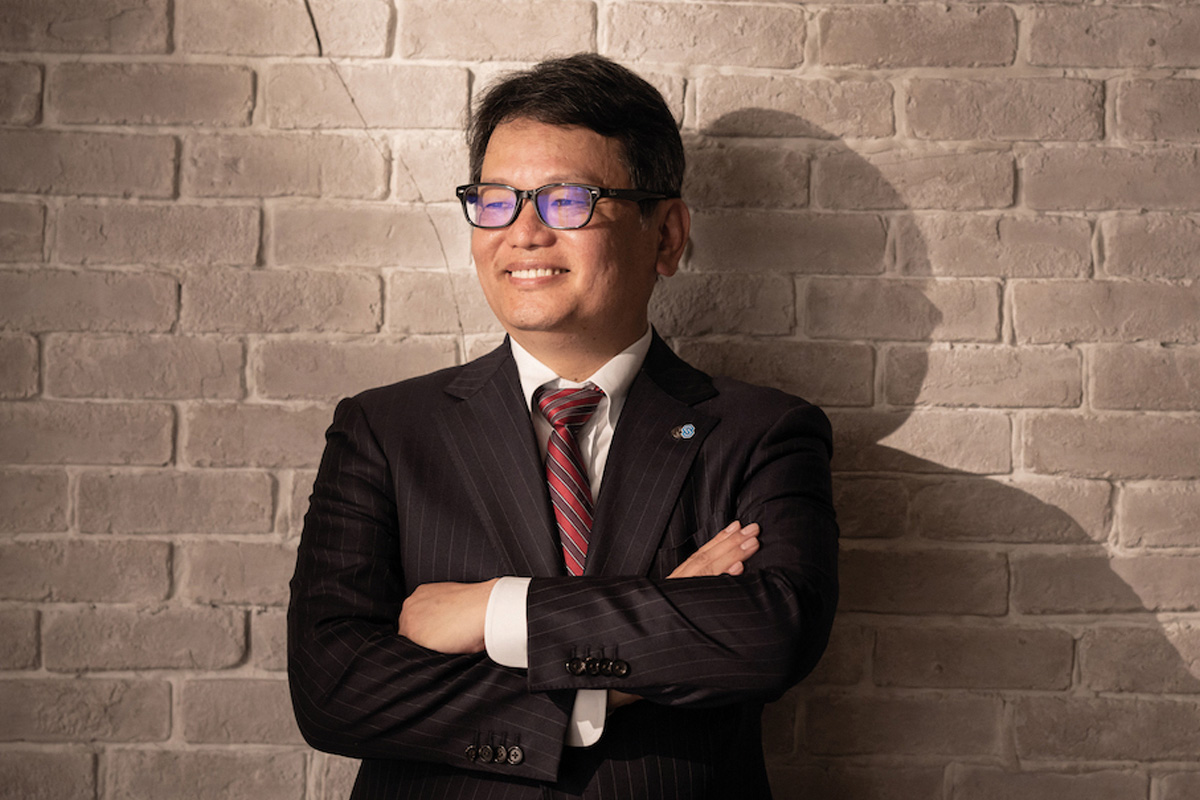
Can you provide a brief overview of your company?
It has been approximately 45 years since our plastic recycling business began. Initially, we operated as a distributor associated with Matsushita Denko, now known as Panasonic. The company was founded by my late father, who had extensive involvement in sales and distribution for Matsushita Electric Works. At that time, Matsushita Electric Works was producing specific plastic materials for its products and required a distributor for chemical materials to extend these resources to other companies, such as Hitachi. This marked the inception of our company, although our primary focus at that point was not recycling but rather expertise in chemical and plastic materials.
Shortly after our establishment, the 1973 oil crisis disrupted our supply chain as distributors. Faced with the challenge of sustaining our business, serendipity struck when we stumbled upon the Tsukiji Market. While exploring the market, my father observed an area emitting black smoke into the air, indicating plastic burning. His intuition proved correct as he discovered the incineration of expanded Styrofoam, a lightweight material resulting from a 50-fold expansion of plastic resin. Recognizing an opportunity, my father envisioned a potential solution.
Driven by this insight, he developed machinery employing a low-grade heat exchange mechanism capable of melting Styrofoam and transforming it into byproducts. This innovative approach aimed to circumvent the harmful environmental practice of burning such materials. Moreover, he took charge of selling the byproducts generated by this machine, thus creating a sustainable solution.
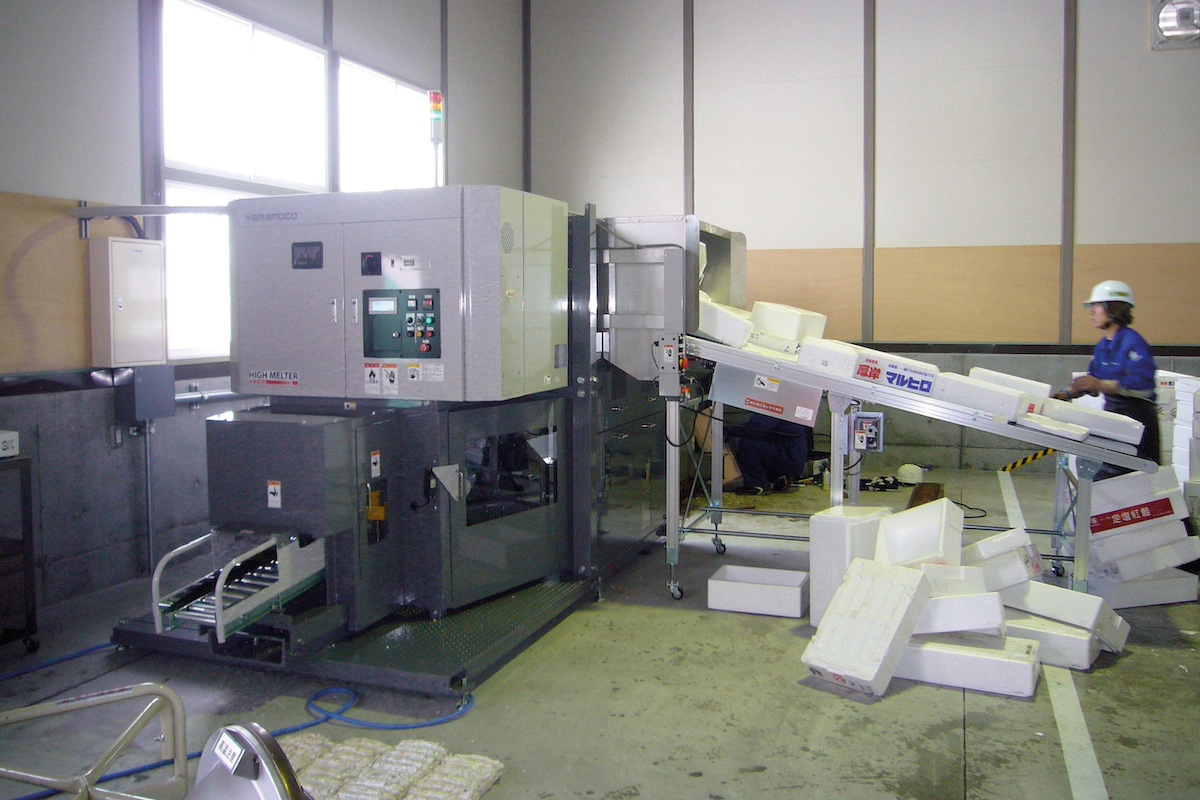
Styrofoam recycling processor
This was when the concept of recycling had yet to take root. Intuitively, we realized that selling the byproducts could substantially reduce costs. This business wasn't primarily driven by environmental concerns such as carbon emission reduction or aligning with government efforts to obtain subsidies for eco-friendly initiatives. Instead, the core motive was to devise a practical solution to combat air and industrial pollution, rooted in a sustainable and profitable business model with solid revenues and sales.
Our founding spirit didn't center on the prevailing trends of the time. The fundamental philosophy behind our establishment was to operate on sound business principles, genuinely benefiting our clients.
Many are often surprised by our humble beginnings. We now have the capacity to collect between 5,000 and 7,000 metric tons of plastic on a monthly basis. Throughout our journey, our corporate philosophy has remained steadfast in ensuring that we offer the greatest service to our clients, enabling them to derive financial benefits from their association with us. As a small business, our commitment is to be exceptionally strong in delivering valuable functions and services to our clients.
Our business philosophy is deeply rooted in Japanese principles, a distinctive approach that might differ from our European counterparts' perspectives on running a business. Contrary to aspirations of becoming a corporate giant, our focus isn't on expanding the scale of our operations. We have about 2,000 customers. Sometimes, they jokingly tell us that Pana Chemical can easily establish factories and storage facilities to collect more plastic. However, that isn't our goal. The scale isn't what we're pursuing. Even as a small business, we find value as a company by having a solid foundation to provide our clients with business merits.
Interestingly, only 7% of our total business stems from distributing chemical materials to Panasonic, and an equal percentage comes from plastic raw material sales. The core of our business revolves around selling recycling machines and collecting plastic raw materials from them. Renowned as a leader in recycling Styrofoam products, we consistently collect 3,000 metric tons of plastic monthly, commanding an impressive 80% market share in this niche within Japan. Similarly, our dominance extends to selling recycling machines, boasting an 80% market share. We've fostered enduring relationships with a loyal clientele, some of whom have been repeat customers for over 15 years, purchasing up to four machines.
Furthermore, we decided to sell our recycling machines overseas and export our EPS recycling system to Europe 15 years ago, but it was much more difficult than we imagined. The initial vision of selling our EPS recycling system for Styrofoam didn't materialize as expected due to cultural, structural and policy disparities. In response, we strategically shifted our focus to the second tier of our business, resource plastic recycling. This involved ensuring the sale of quality recycled material at a premium price through legally firm and sound channels.
China has a different policy that bans the import of specific plastic materials. Hence, we needed to guarantee that whatever we sell would go through legal channels and produce all the paperwork for transparency. This commitment to transparency extends to both our resource plastic recycling and EPS recycling, emphasizing a clear showcase of where our materials are exported and how they are utilized.
Japan created the Plastic Circulation Policy, and the Basel Convention posed new regulations and limitations on the types and plastics that could be exported to particular locations. How have these different policies impacted the plastic recycling sector and your company more specifically?
I have played a pivotal role in influencing and shaping Japan's import restrictions and policy measures in alignment with the Basel Convention, particularly within the Environmental Ministry. The Basel Convention emphasizes that rules and policies should be tailored to individual countries, and my involvement has been instrumental in aligning Japan's regulations with these international standards.
As the representative of the Resource Plastic Association, an organization I established, I have actively participated in policymaking related to resource plastic recycling in Japan. The regulations formulated by this association have effectively become the de facto standards for Japan, ensuring compliance with the Basel Convention. My active participation allows me to offer valuable insights as a non-governmental citizen advocate.
In accordance with the Basel Convention's guidelines, the export of plastic products mixed with contaminated plastic is prohibited. However, due to limitations and costs associated with electricity, utilities and labor, it is impossible to achieve full plastic recycling within Japan's borders. The upcoming increase in export costs from next year further complicates the prospect of conducting comprehensive recycling domestically.
Japan predominantly uses high-grade A plastic products, and unlike China and Southeast Asia, which have a higher demand, there is limited domestic demand for these raw materials. The Japanese market for recycled products is relatively small, as it primarily deals with high-end products. In contrast, Europe incentivizes the use of recyclable materials by offering government subsidies of 25% to 30%. Lacking similar incentives within the Japanese system, we are compelled to export these products abroad. Striking the right balance in our business approach is critical as we navigate these complexities.
We want to navigate through the legal aspects and create a sound management strategy to guarantee the success and sustainability of our recycling operation. The recycling market needs to be logical and based on a well-strategized approach. The more countries implement policies and emphasize business sustainability, the harder it is to develop a sound business strategy to make that possible. The gap between ideals and reality continues to grow apart.
Our goal is to establish a business that is not only environmentally responsible but also profitable for all stakeholders involved. We recognize the importance of substantiating these ideals with practical and tangible measures. With a track record of dealing with and recycling approximately 1.5 million metric tons of products, we can proudly claim that our business model is sustainable. Our approach focuses on cost-cutting through efficient machinery, transforming the recycling process into a logical and profitable business opportunity for everyone.
Incorporating crushing and compressing processes in our operations, it is imperative that our machinery and byproducts are easily transportable. Strategically situating our storage facilities in close proximity to ports allows for cost-effective transportation, benefiting everyone involved through reduced costs
This integrated approach enables us to create a circular economy.
What role does partnership play within your business model? Are you seeking new partnerships in overseas markets?
Partnerships are vital and have played an indispensable role since we started our business. We've always been a small company with a limited staff, so we need close collaborations and strong partnerships with our clients. We consider our partners to be our good friends. Our unique relationship involves selling machines to our partners initially, after which we become clients by purchasing the byproducts from them. This reciprocal relationship has endured for generations in some companies, with certain overseas partnerships spanning over 40 years. In some cases, I've known the presidents of these companies since their elementary school days. These relationships foster an environment of trust and mutual growth.
Unlike markets for trendy products like iPhones, the recycling market is small and highly volatile. We recognize that significant fluctuations, either drops or peaks, occur approximately every six years, a timeframe that has become even shorter in recent times. We anticipate periods when the business might face challenges, and there may be a decline in demand for raw materials. However, within our business, we have established reliable routes built on trust and reliability. These enduring relationships help us to remain resilient and sustainable even during challenging times.
The two major challenges for large companies in purchasing resin raw materials are quality and cost. In terms of quality, buyers think recycled plastic won't be as high quality as normal plastic. Recycled plastic requires paying a premium for these environmental products. How does your company solve these two challenges?
Recognizing this perception, especially prevalent in overseas markets, our core policy is centered around transparency. We openly disclose that products made from recycled materials may exhibit lower quality than those made from virgin materials, and we price our products accordingly.
To address quality concerns, we have established the highest standards within the range of recycled materials through the advanced machinery we provide. Products made exclusively from recycled materials are heat-treated, which can affect their quality, but we use the concept of bulking agents (we target companies that manufacture products like 80% virgin plastic with 20% recycled material) to determine who to sell to. This approach allows for cost reduction while maintaining a high level of quality, comparable to products made entirely from virgin plastic. Our focus on this model is particularly evident in our operations in China and Southeast Asia.
Hence, our business model is based on collecting substantial volumes of plastic domestically and selling it to overseas markets like China and Southeast Asia.
Can you describe your J-EPS Recycling System in a little bit more detail? Why do you believe it has been so successful until now?
While we excel in resource plastic recycling, a market where we hold a substantial share, we consider it a core responsibility of our company to promote the J-EPS Recycling System. The "J" in its name signifies our intention to promote it globally as an EPS Recycling System that originated in Japan. In 2022, we established the J-EPS Association, with over half of our clients becoming its members The initiative was created in response to international calls for a ban on Styrofoam. This is because some international organisations have advocated a total ban on Styrofoam products due to the realisation that Styrofoam is not recyclable. However, we hold a contrary perspective, as we successfully recycle approximately 90% of styrofoam waste (52% of which is material recycling) in Japan. To promote our effective styrofoam recycling process globally, I conducted interviews with U.S. think tanks, including Bloomberg. Given the safety and success of our approach, it is crucial to disseminate this model on a global scale. The creation of the J-EPS Association serves this purpose, aiming to encourage other businesses to adopt our system strategies and technologies for implementing styrofoam recycling in their respective countries. We hope that this initiative may yield future benefits for us.
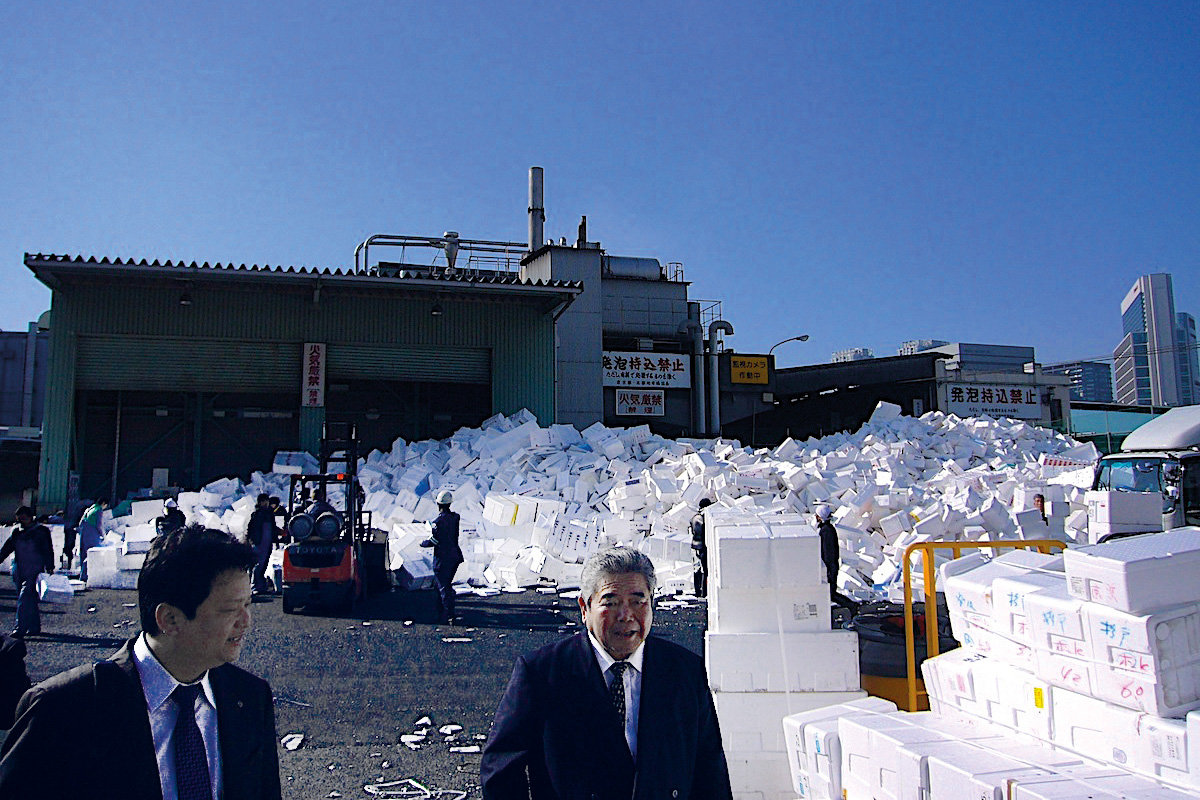
Tokyo’s Tsukiji Market and a pile of fish boxes
We have developed an illustrated brochure, or picture book, to introduce our system. An English version is accessible on our website. The creation of the picture book serves the purpose of providing education to a diverse audience, including children, ensuring ease of access for everyone.
Our business model revolves around the mechanical breakdown of styrofoam into ingots. The by-products are utilized to create high-quality raw materials, which can be used on large-scale productions and sold at lower costs.
How do you efficiently recycle styrofoam, considering its significant challenges, such as being lightweight and having a highly porous structure?
Subjecting the styrofoam to heat will compress the polystyrene and produce ingots. In Europe, they use compression without heat, which is not as effective as compressing styrofoam with heat—a method my father pioneered. He developed a unique, comprehensive methodology for recycling styrofoam, initially focusing on compressing it with heat, and later realizing the potential to create pellets after compression.
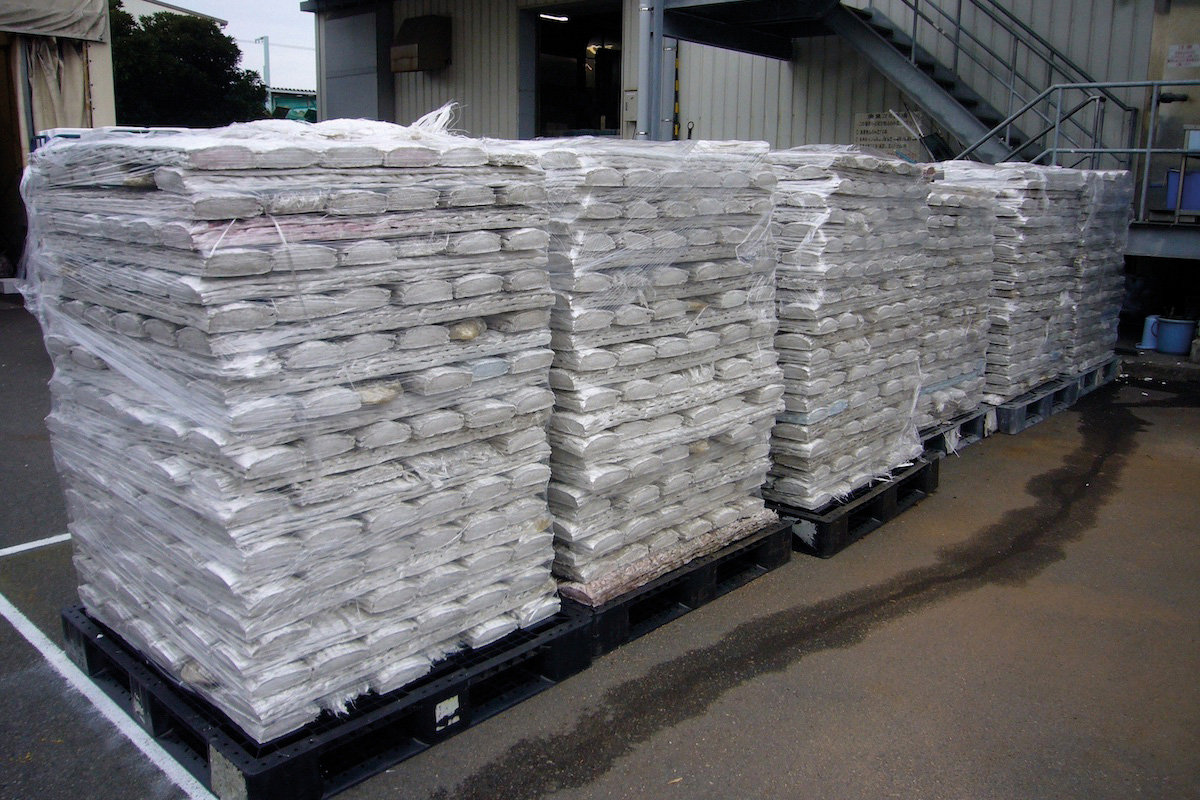
J-EPS recycling EPS ingot
Pelletizing is more cost-effective if done outside Japan. Through compression, we reduce the size of the styrofoam to 1/50 of its original dimensions. This not only minimizes storage space requirements but also slashes truckload costs to 1/50 of the original expenses.
Our approach challenges the notion that certain items are deemed non-recyclable. We have successfully demonstrated that even seemingly challenging materials can undergo recycling. To optimize costs, we chose to conduct pelletizing overseas instead of locally. This decision is driven by the fact that performing this process in Japan would incur five times the cost due to higher labor expenses in our country.
In addition to engaging in plastic processing and trading, your company also provides recycling equipment to customers. What additional benefits or value do your processing machines offer to your customers?
There are two primary added values. Firstly, we possess a comprehensive understanding of the entire business process, including the ultimate purpose of the end products. We have designed a machine capable of generating a high-quality by-product, ensuring optimal value for our clients. Additionally, our production yields a clean end product with a uniform shape, facilitating easy handling and transportation. Notably, our products adhere to the guidelines outlined in the Basel Convention, a framework for managing hazardous and other waste. I played a key role in proposing and implementing policies aligning with the Basel Convention in Japan. This underscores our commitment to understanding both pre- and post-consumer aspects of our operations.
At the pre-consumption level, materials originate from various sources such as food factories, manufacturing plants, and distribution centers. Those obtained from commercial and industrial facilities, as well as distribution centers, are thoroughly approved due to their awareness of manufacturing processes and adherence to established standards. However, the post-consumer stage needs stricter regulations, especially concerning Styrofoam collected from consumers. This heightened scrutiny is necessary because we lack information about how consumers used and treated the material, necessitating a more cautious approach to ensure compliance with regulations.
In Europe, there are industrial players who mechanically separate materials, but the process lacks the detailed and thorough approach seen in Japan. Through collaboration with the Environmental Ministry, we have developed policies in Japan that allow non-industrial players seeking to recycle to utilize specific machinery, such as the EPS Densifier and Plastic Recycling Machines. If they have equipment approved under the Basel Convention, they gain legal approval to commence operations, as our equipment meets international standards. Engaging with us and acquiring our equipment aligns companies with various associations right away, including the Ministry of Environment and the J-EPS Recycling Association. This ensures a comprehensive support system for those entering the recycling arena.
We have also secured approval from our international clients. Numerous companies in China are now adopting our business model, serving as a testament to its effectiveness.
Not only are you concentrating on the domestic market in Japan, but you have also expanded overseas, establishing over 50 partnerships with recycling collaborators globally, particularly in Southeast Asia, Europe, and America. In which region do you aim to introduce or enhance your presence for further international expansion?
In the coming decade, our primary focus will be on Southeast Asia, driven by the strategic decisions of many of our long-time clients. These clients, with whom we have cultivated strong partnerships in China and Hong Kong, are expanding their operations by establishing factories in different countries within Southeast Asia. Additionally, we have received business offers from Lithuania, Spain, Turkey, and Mexico.
Our innovative approach is to export 3000 tonnes of Styrofoam ingots abroad each month and then acquire their Styrofoam products (picture frames and building materials). Recognizing the global demand for Styrofoam, the aim is to identify markets with high needs and introduce products accordingly. This is particularly feasible within the ASEAN region, as it is cost-effective to transport. Shipping to India is also not difficult.
Our target markets are areas that require large quantities of framing and building materials. Spain may not have as high a demand, but the Turkish market is growing. There are plenty of opportunities to expand our business over the next 20 years.
Panachemical has established its reputation and is known by many companies in the sector. We have about 50 international business partners, 12 of which are Styrofoam-related ventures. We already have a strong network to sustain and grow our business for years to come.
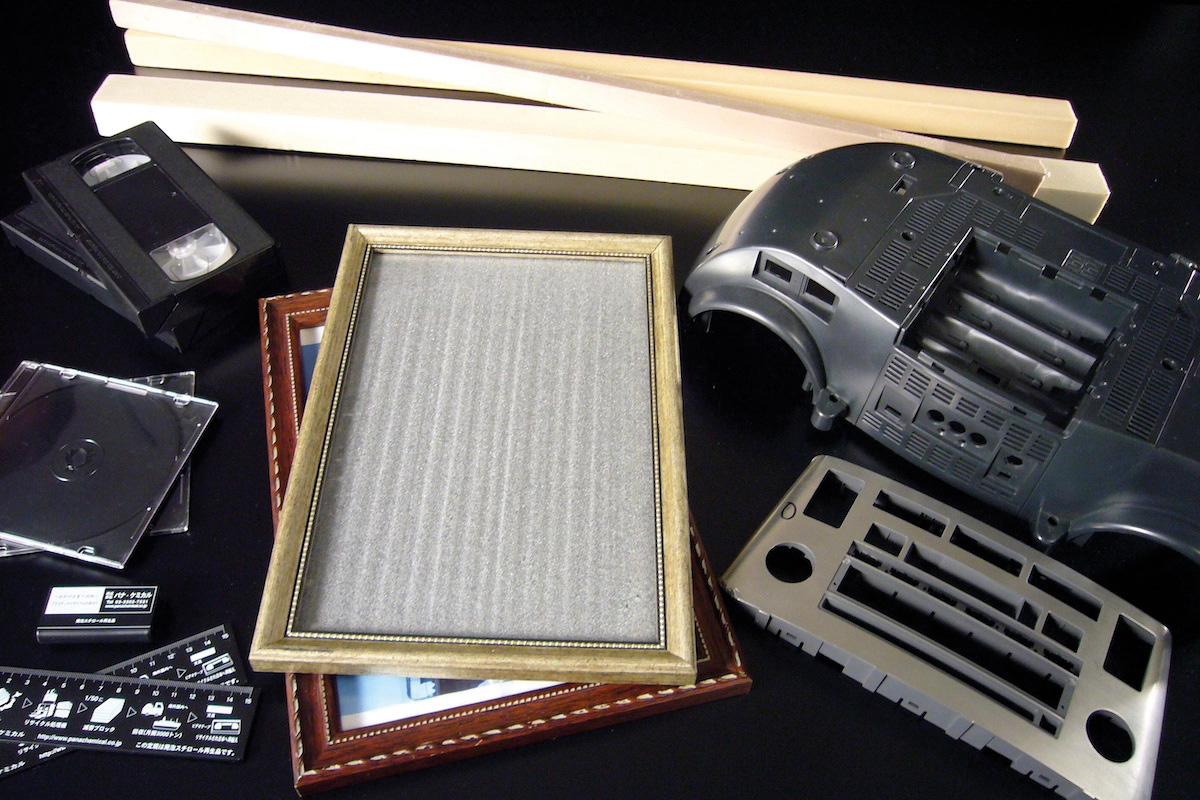
Styrofoam recycled products
What specific goals and ambitions do you aspire to achieve for the company, and what kind of legacy do you envision passing on to the next generation?
My goal is to solidify the recycling market domestically. I envision the recycling business in Japan becoming a robust business opportunity with a solid business model and effective management. Despite the prevalent focus on government incentives and sustainability goals (SDGs and ESGs), I believe it's essential to balance these pursuits with investing and creating viable business opportunities with strong foundations within Japan. This involves finding different solutions to addressing waste management, such as waste-to-energy processes. We also need to develop strong partnerships between the government, civil society, and commercial businesses. Strengthening connections, such as our collaboration with the J-EPS Recycling Association, is just one example of combining various elements to create and fortify a more balanced recycling market in Japan.
Currently, we have around 2000 clients, and this number is continually growing. My goal is to offer solutions to our clients, just like what we did with our EPS densifiers. If these densifiers can be utilized for thermal energy, we can create a design specifically to meet that need. The goal is to design equipment that can help reduce recycling costs and can be locally implemented.
Our overseas strategy is not centered on dominating foreign markets, but rather on fostering collaboration and sharing our expertise and methodologies. The objective is to establish sustainable overseas businesses through mutual growth and knowledge exchange. I am confident that we can maintain a significant presence overseas, particularly in the realm of Styrofoam recycling.
0 COMMENTS